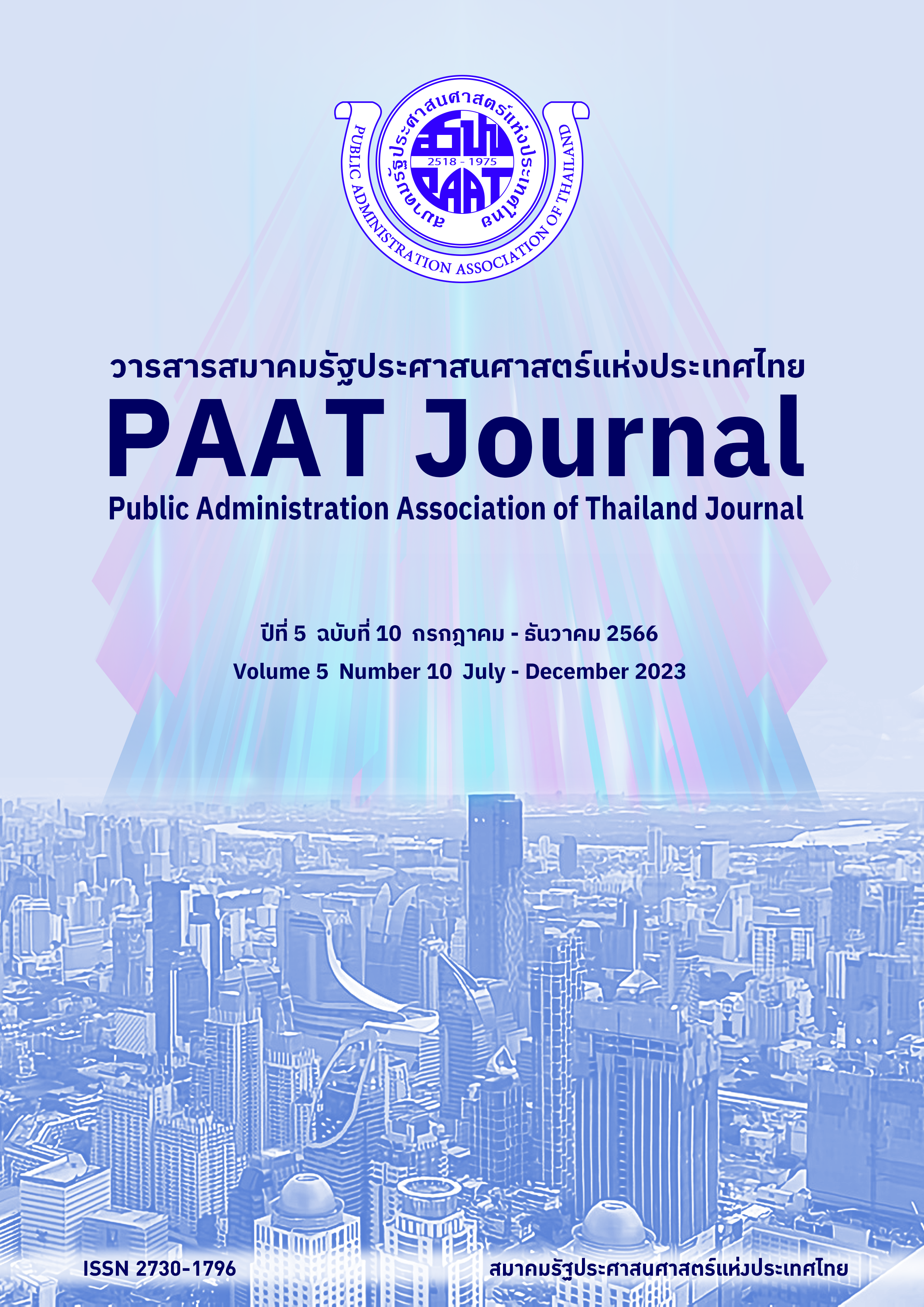The Role of Teacher Love Home in Inventing and Creating Educational Innovations based on Existentialism
Keywords:
Teacher Love Home, Educational Innovations, ExistentialismAbstract
This study aimed to propose guidelines for fetching educational innovations from the products of Teacher Love Home through a thinking process based on past wisdom to form a strong background and existentialism with a belief that humans have freedom of thought, action, and the courage to face problems intelligently. Additionally, teachers must try to reduce the distance between empirical facts and practical possibilities. Teachers need to dedicate themselves to participating in training or learning strategies to permanently improve their thinking processes along with a network to work together to continually review the accuracy of the feedback. Moreover, educational innovations will be unattainable unless educational institutions policies, rules, and regulations facilitate a safe and stress-free environment. When teachers can innovate and develop educational innovations, the next important thing is to apply them under the conditions of compatibility with the organizational culture based on the context of the educational institution. This is regarded as a stimulation to build awareness of the role of a teacher as well as encouragement within the organization to achieve concrete actions.
References
จิราภรณ์ จันทร์โฉม และสุวิน ทองปั้น. (2563). ปรัชญาการศึกษาอัตถิภาวนิยมกับแนวคิดการศึกษานอกระบบและการศึกษาตามอัธยาศัย. วารสารวิชาการธรรมทรรศน์, 20(2), 185-196.
นรเศรษฐ์ แก้ววิภาส. (2548). การปฏิรูประบบอุดมศึกษาในสหพันธ์สาธารณรัฐเยอรมณีตามปฏิญญาโบโลญญ่า. วารสารศิลปศาสตร์, 5(2), 156-179.
สำนักงานคณะกรรมการการอุดมศึกษา. (2559). โครงการผลิตครูเพื่อพัฒนาท้องถิ่น (พ.ศ. 2559-2572). สำนักงานคณะกรรมการการอุดมศึกษา.
สุนทร โคตรบรรเทา. (2553). ปรัชญาการศึกษาสำหรับผู้บริหารการศึกษา. ปัญญาชน.
Adedeji, S. O. & Olaniyan, O. (2011). Improving the Conditions of Teachers and Teaching in Rural Schools across African Countries. International Institute for Capacity Building in Africa.
Barno, O. & Makhmudov, K. (2020). Roles of Teachers in Education of the 21st Century. Scientific Journal, 1(3), 554-557.
Deal, T. E. & Peterson, K. D. (1998). The Heart to Leadership. Jossey-Bass.
Findikoglu, F. & Ilhan, D. (2016). Realization of a Desired Future: Innovation in Education. Universal Journal of Educational Research, 4(11), 2574-2580.
Fuad, D., Musa, K. & Yusof, H. (2020). Innovation in Education. Journal of Educational Research & Indigenous Studies, 2(1), 1-11.
Koirala, M. P. (2011). Existentialism in Education. Academic Voices A Multidisciplinary Journal, 1(1), 39-44.
Larasati, Q.I., Cahyaningtyas, A., Mangzila, A., Firawati, A.A., Yuanita, S.M. & Lesmana, I. (2019). The Role and Function of Teachers in Improving Effective Learning in Classes. Advances in Social Science, Education and Humanities Research, 381, 13-17.
Licht, A. H., Tasiopoulou, E. & Wastiau, P. (2017). Open Book of Educational Innovation. European Schoolnet.
Moreira, C., Abuzaid, J.N., Elisondo, R.C. & Melgar, M.F. (2020). Educational Innovation: Perspectives of Teachers and Students at Universidad Nacional De Rio Cuarto (Argentina) and Universidad Del Atlantico (Colombia). Panorama, 14(26), 1-15.
Mozaffari, M. & Jahanian, R. (2016). Identifying Existentialist Philosophy of Education. International Academic Journal of Social Sciences, 3(8), 18-28.
OECD. (2018). The Future of Education and Skills Education 2030. Directorate for Education and Skills-OECD.
Reed, W.A. (2009). The Bridge is Built: The Role of Local Teachers in an Urban Elementary School. The School Community Journal, 19(1), 59-75.
Sayeski, K.L. (2013). A New Era of Teacher Education: Introduction to the Teacher Education Column. Teacher Education, 48(5), 303-306.
Serdyukov, P. (2017). Innovation in Education: What works, What doesn’t, and What to do about it. Journal of Research in Innovative Teaching & Learning, 10(1), 4-33.
Stankevice, I. & Jucevicius, G. (2013). Institutional VS. Sectoral Dimension of Innovation Strategies of Firms. Technological and Economic Development of Economy, 19(1), 360-382.
Yu, Z., Zhou, S. & Li, Y. (2014). An Analysis of Influencing Factors of Innovative Education and Development Proposals. International Conference on Education Reform and Modern Management, 57-61.
Downloads
Published
How to Cite
Issue
Section
License
Copyright (c) 2023 PAAT Journal

This work is licensed under a Creative Commons Attribution-NonCommercial-NoDerivatives 4.0 International License.



